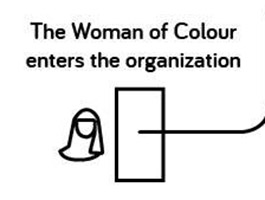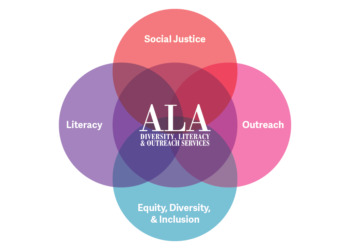It’s been great to see so many scholarly publishers — and the organizations they work with (societies and associations, vendors and infrastructure providers, industry organizations like SSP, and more) — committing to improving diversity, equity, inclusion, and accessibility (DEIA). But what does that actually mean in practice? Are there concrete examples of successful (or unsuccessful) initiatives that we can all learn from? What does success look like, and how do we measure it? What role should publishers, learned societies, and other organizations in our community play in responding to and furthering the efforts to achieve greater DEIA? And what can we commit to doing at the individual, organizational, and community level to effect real change?
If you or your organization are working to improve DEIA and grappling with these or other questions, please consider sharing your experiences in an upcoming special issue of ALPSP’s journal, Learned Publishing (LP), which will be dedicated to this topic. Edited by LP’s North American editor, Lettie Conrad, supported by a global advisory board (of which I’m honored to be a member), this special issue will focus on how to move from talking about change to making it a reality. We are lucky to be joined on the advisory board by Gracian Chimwaza (ITOCA), Cenyu Shen (DOAJ), Jie Xu (Wuhan University), Rosalia Garcia (SAGE), Simon Holt (Elsevier), Stacy Scott (Taylor & Francis), and Brit Stamey (J&J Editorial).
We are looking for papers that report on DEIA initiatives underway, how their impacts are being measured, and the lessons being learned. Examples include (but aren’t limited to!): human resources (e.g., hiring and recruitment processes); virtual events that enable broader participation; open access, APC waivers, and other options for expanding readership and/or authorship; best practice guidelines and standards in support of DEIA (e.g., inclusive language recommendations, accessible publishing/platform remediation); DEIA committees and working groups; and more. They can be in the form of case studies, industry updates, original research, or opinion pieces. We want to know what our community is doing to address systemic imbalances; what works and what doesn’t; and what challenges you and your organizations are facing and how you are working to address them.
To quote Lettie:
We are looking for practical solutions and proven tactics to rebalancing the power dynamics in our industry. This issue will read like an action plan for publishers and our partners to ensure everyone is welcome to participate and we can move the needle toward more equitable representation in scholarly communications.
I couldn’t put it better! The special issue will publish in January 2023 and all content will be openly available for the rest of that year. For those who wish to make their content fully open beyond 2023, details are available here. The submission deadline is September 15, 2022 and you can find more information on the Learned Publishing web page. You’re also welcome to email Lettie if you have any questions or would like to discuss your ideas with her before submitting an article. We look forward to reading your submissions!
Discussion
3 Thoughts on "Implementing DEIA in Scholarly Publishing — A Call for Papers"
One thought that comes to mind always when we speak of gender equality is that – why are the administrative offices of organisations still asking for “gender” in every application and official columns? The rules should be same, equal for everyone. once that is set then the point of asking the “gender” is nulled automatically? Just a thought…
In an ideal world, yes, all things would be equal and all would be treated the same. Unfortunately, this is not the case in our industry (or our society more broadly), as evidenced by many studies (links below for a couple we’ve covered). Hence, course correction is needed to get to the point you seek.
https://scholarlykitchen.sspnet.org/2016/10/25/mind-the-pay-gap/
https://scholarlykitchen.sspnet.org/2016/06/07/mind-the-gap-gender-disparity-in-scholarly-publishing-revisited/
https://scholarlykitchen.sspnet.org/2021/03/18/guest-post-reckoning-with-whiteness-in-scholarly-publishing/
Thank you so much for the links and the reply. Yes I agree with the fact that we do need a course correction. I have experienced the disparity firsthand. Hence the feeling that the change should come from the top most offices..Believe we have much work to do to get there



